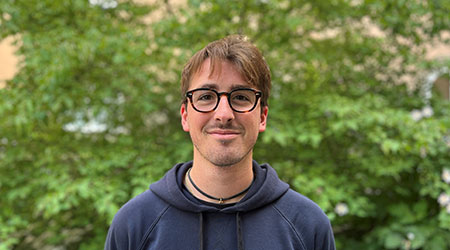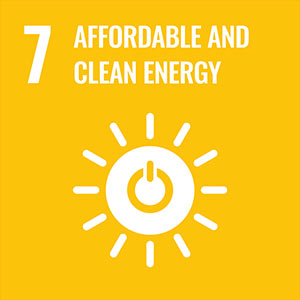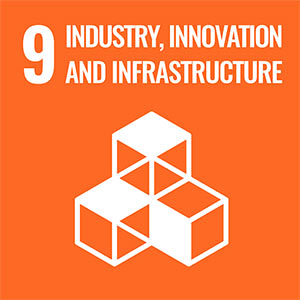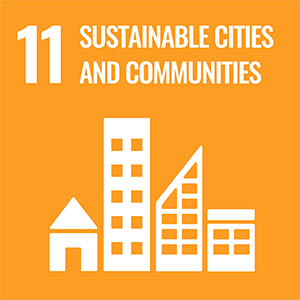MSc Embedded Systems
The master's programme in Embedded Systems provides a thorough understanding of Embedded Systems and specialisation in a specific area covering theoretical and practical aspects of embedded systems development. Students gain engineering skills and learn integration of software and hardware, system design, integration, verification and management. Graduates have the expertise to harness the possibilities for innovation in the growing area of embedded systems.

Embedded Systems at KTH
Embedded systems are the most common form of computer systems, utilising around 98% of all manufactured processors for their applications, from sewing machines and cars to satellites and power plants. The common denominator for these systems is high-level demands on functionality and reliability—the master's programme in Embedded Systems fosters highly competitive graduates in this critical field.
The master's programme in Embedded Systems provides a broad education in embedded systems with the opportunity to specialise in areas that cover theoretical and practical aspects of embedded systems development. We place particular emphasis on engineering skills, integration of software and hardware, system design, integration, verification and the management of the design process.
The programme offers three tracks:
- The Embedded Electronics track addresses the problems of integrating sensors, analogue circuits, and communication devices into SoC/ASIC and PCB-based embedded systems, with a focus on the Internet of things.
- The Embedded Platforms track addresses the problems of designing and assembling an embedded single-/multi-/many-core CPU platform, including VLSI design and embedded software.
- The Embedded Software track addresses the problems of designing and maintaining embedded software running on single-/multi-/many-core systems, including software engineering and computer hardware fundamentals.
The programme has a total of 120 ECTS credits structured as follows. About 30 ECTS credits consist of mandatory courses for all students in the programme. About 30 ECTS credits consist of courses that are mandatory for that specific track. About 30 ECTS credits are elective courses, and the final 30 ECTS credits consist of the degree project. During the last semester, you demonstrate the skills you have acquired during the programme through a degree project. You will write a thesis report, present it and defend the results. The focus of the project may be proposed by you, an examiner, a company, a public agency or any other external organisation, but the project plan must be approved by the examiner of one of the thesis project courses in the curriculum. The degree project can also be carried out at another university or a company.
This is a two-year programme (120 ECTS credits) given in English. Graduates are awarded the degree of Master of Science. The programme has courses both at KTH's main campus and KTH Kista campus in Stockholm and is offered by the School of Electrical Engineering and Computer Science (at KTH).
Students
Find out what students from the programme think about their time at KTH.

Career
The enormous price and performance developments of electronics, coupled with their flexibility and programmability, create considerable opportunities for innovation. At the same time, the industry is experiencing problems with sustaining competence in the area and facing significant challenges in managing the integration of software and hardware.
Employers of graduates from the master's programme in Embedded Systems are companies that develop electronic components and embedded systems in all possible areas. The programme has a broad industrial contact network through ICES – the KTH Innovative Centre for Embedded Systems. ICES member companies support implementation and student activities in the programme, such as trainee positions, master's degree projects and pilot projects, offering participants an excellent bridge into the industry or further education in the form of doctoral studies.

Sustainable development
Graduates from KTH have the knowledge and tools for moving society in a more sustainable direction, as sustainable development is an integral part of all programmes. The three key sustainable development goals addressed by the master's programme in Embedded Systems are:



You will acquire a fundamental understanding of the power and energy consumption of transistor-based electronic and computer systems and knowledge of basic principles for improving and optimising their power and energy efficiency in performance, cost and reliability constraints for electronic consumer products, mobile computing devices, network and communication systems, the Internet of Things and cloud computing infrastructures. Multiple courses, from theory to practice, from mini-project to degree project, allow our students to develop relevant expertise continuously.
You will be able to work as an engineer in companies that develop power- and energy-efficient solutions for electronic and embedded computing systems, a manager in organisations that provide energy-efficient IT solutions in healthcare, economic and industrial sectors, or a researcher in institutions that conduct cutting-edge research on emerging and future sustainable electronics, computers and networked systems.
Faculty and research
The master's programme in Embedded Systems is offered by the School of Electrical Engineering and Computer Science at KTH. Embedded Systems is within the subject of Electrical and Electronic Engineering, for which KTH is globally ranked 23rd in the QS World University Rankings by Subject 2023.
Professor Zhonghai Lu is the programme director. The programme is coordinated via the Division of Electronics and Embedded Systems, Department of Electrical Engineering.




